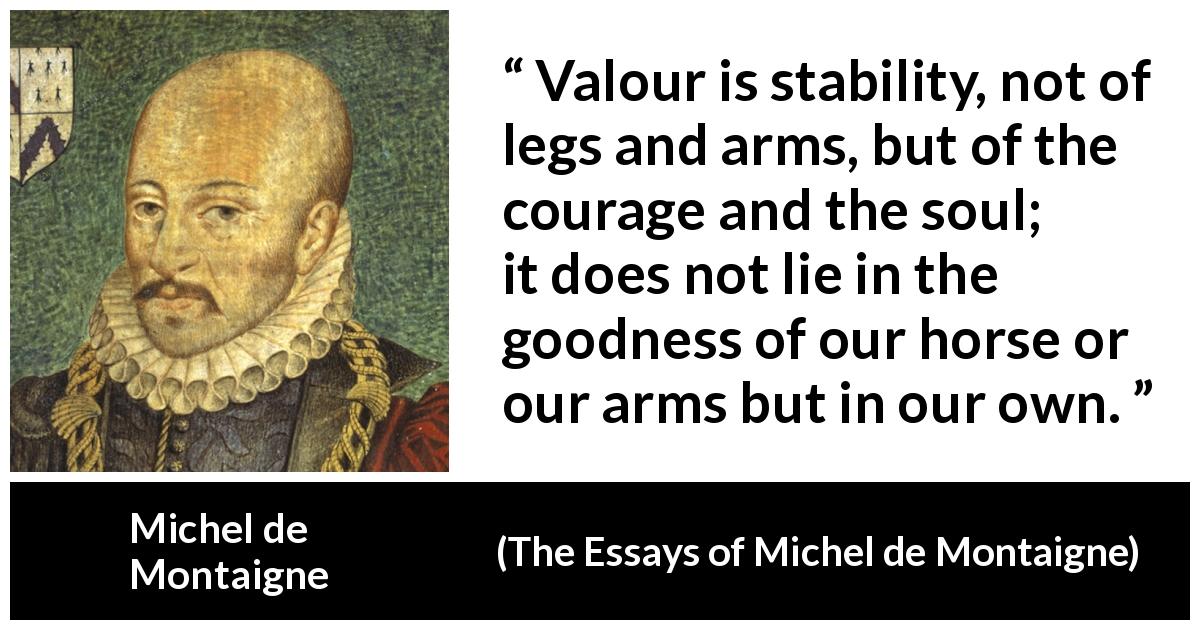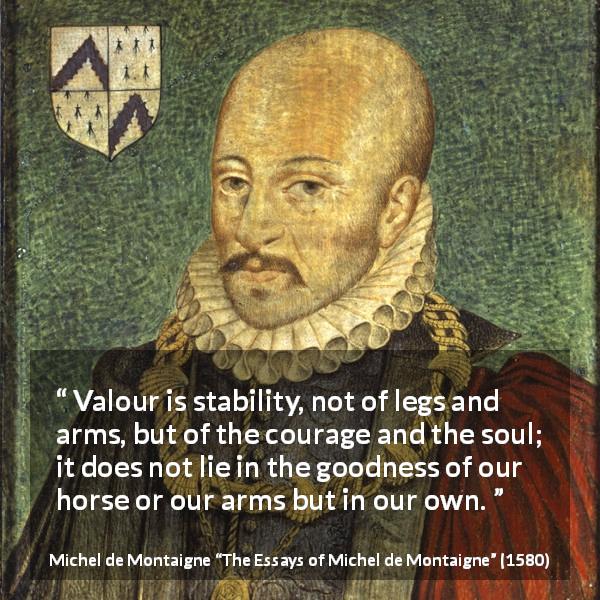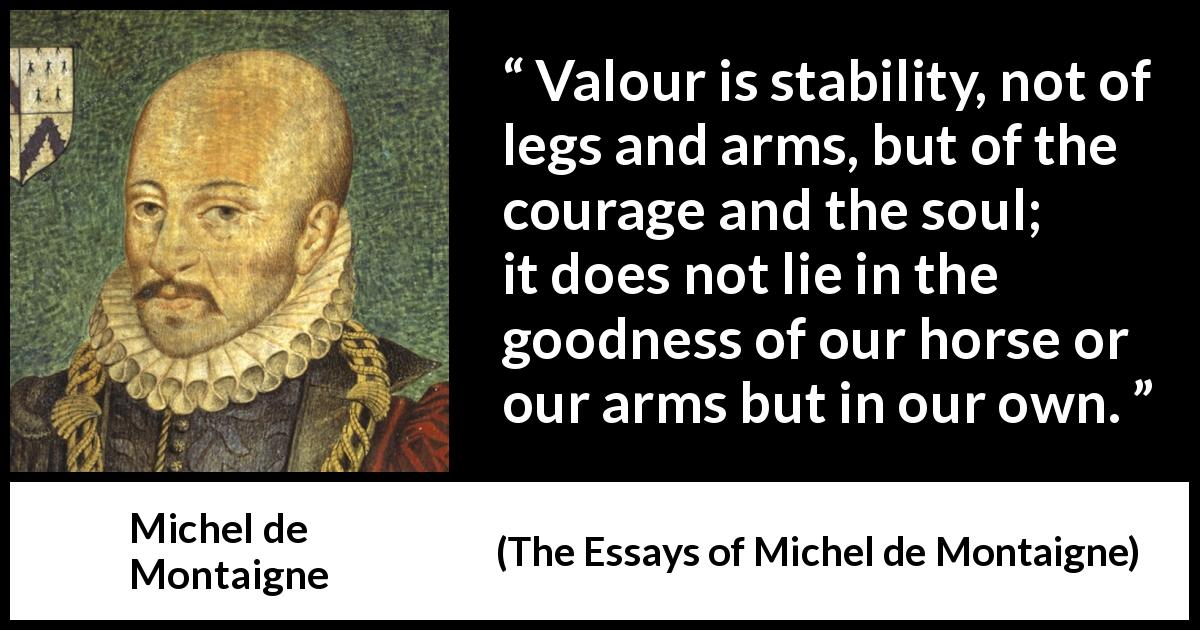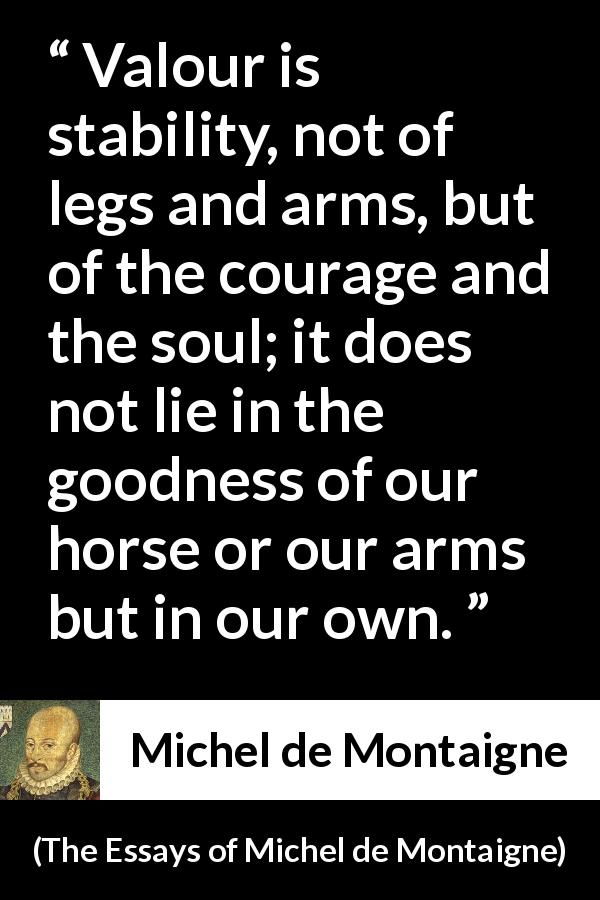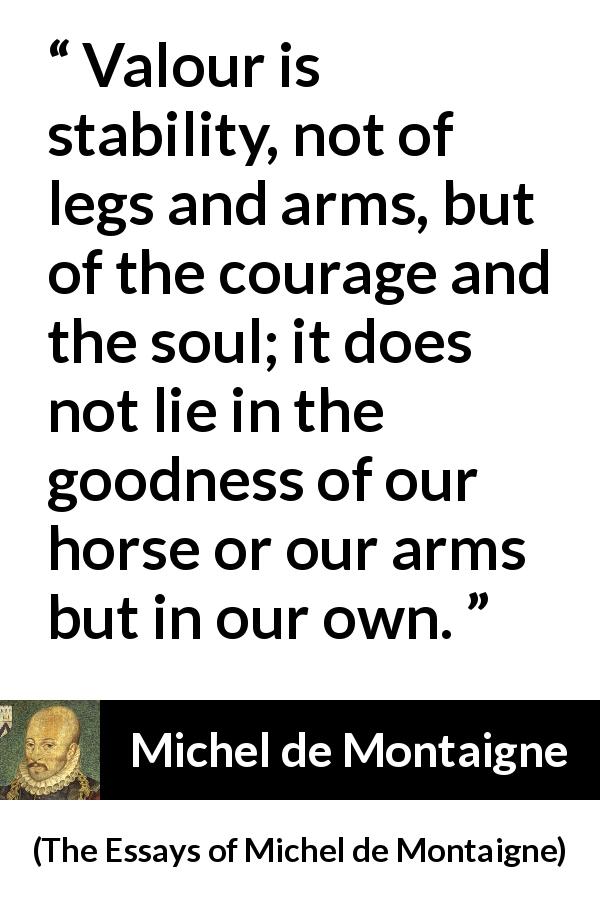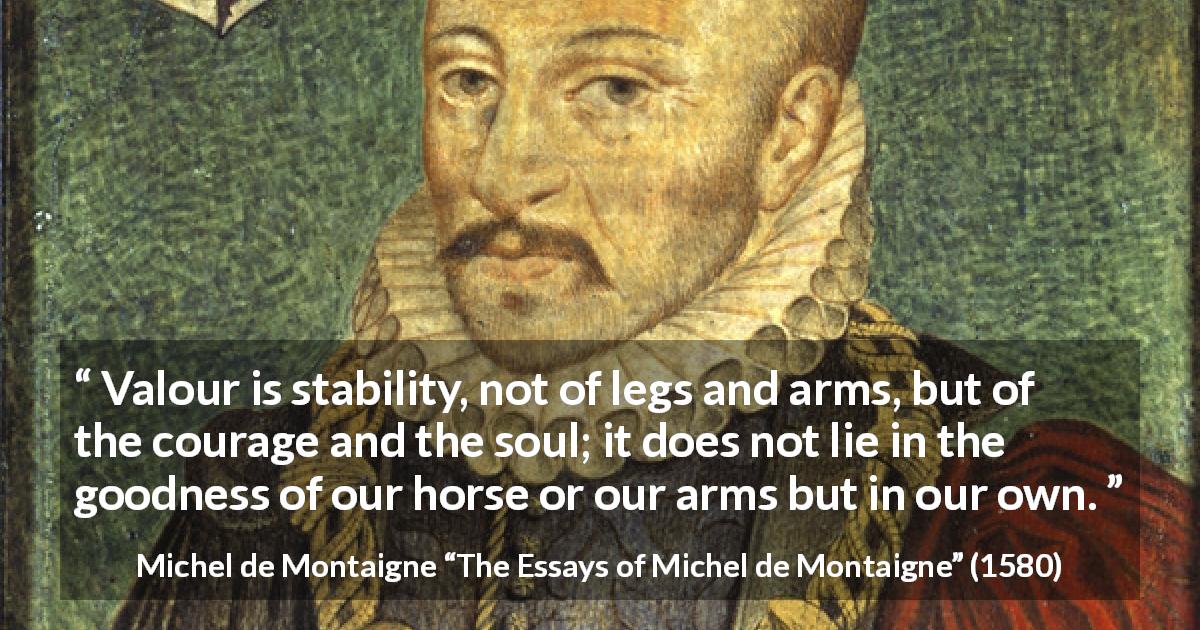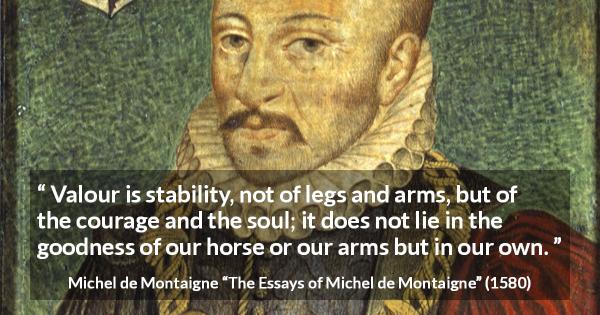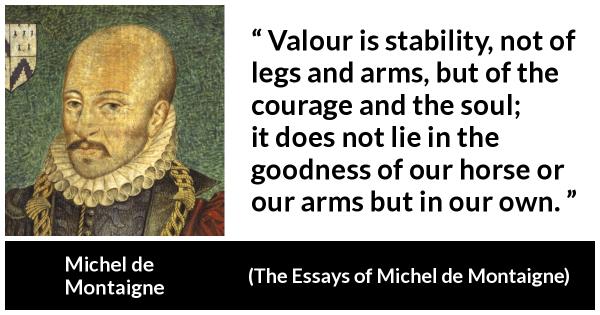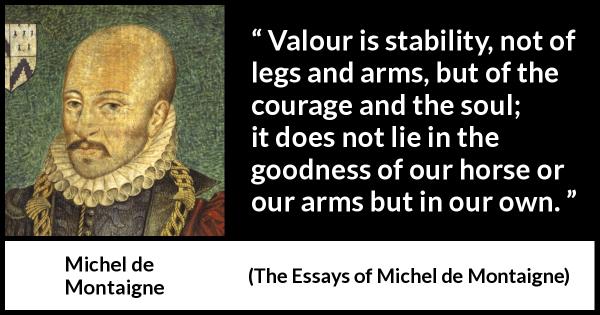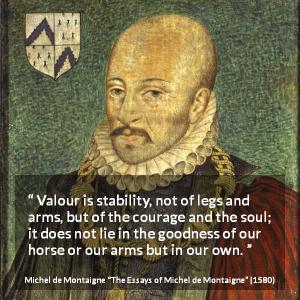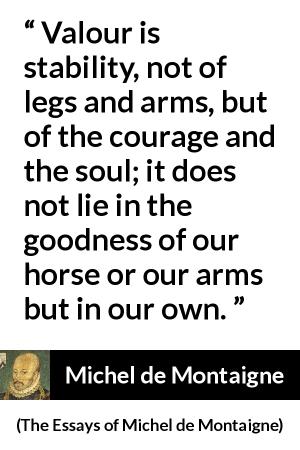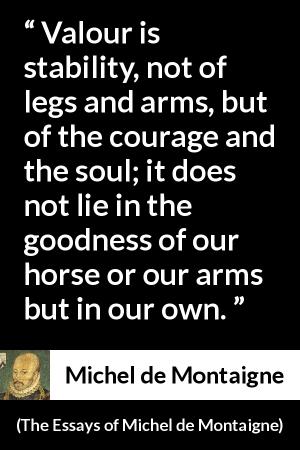“ Valour is stability, not of legs and arms, but of the courage and the soul; it does not lie in the goodness of our horse or our arms but in our own. ”
Michel de Montaigne, The Essays of Michel de Montaigne (1580). copy citation
| Author | Michel de Montaigne |
|---|---|
| Source | The Essays of Michel de Montaigne |
| Topic | strength courage soul valour |
| Date | 1580 |
| Language | English |
| Reference | |
| Note | Translated by Charles Cotton |
| Weblink | http://www.gutenberg.org/files/3600/3600-h/3600-h.htm |
Context
“We have sufficient advantages over our enemies that are borrowed and not truly our own; it is the quality of a porter, and no effect of virtue, to have stronger arms and legs; it is a dead and corporeal quality to set in array; 'tis a turn of fortune to make our enemy stumble, or to dazzle him with the light of the sun; 'tis a trick of science and art, and that may happen in a mean base fellow, to be a good fencer. The estimate and value of a man consist in the heart and in the will: there his true honour lies. Valour is stability, not of legs and arms, but of the courage and the soul; it does not lie in the goodness of our horse or our arms but in our own. He that falls obstinate in his courage—
«Si succiderit, de genu pugnat» [«If his legs fail him, he fights on his knees.» —Seneca, De Providentia, c. 2.]
—he who, for any danger of imminent death, abates nothing of his assurance; who, dying, yet darts at his enemy a fierce and disdainful look, is overcome not by us, but by fortune; he is killed, not conquered; the most valiant are sometimes the most unfortunate.” source
«Si succiderit, de genu pugnat» [«If his legs fail him, he fights on his knees.» —Seneca, De Providentia, c. 2.]
—he who, for any danger of imminent death, abates nothing of his assurance; who, dying, yet darts at his enemy a fierce and disdainful look, is overcome not by us, but by fortune; he is killed, not conquered; the most valiant are sometimes the most unfortunate.” source
